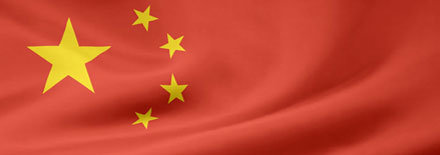Drink hard, speak softly: Danny Chan on common Kiwi business mistakes in Asia

If you build a strong personal relationship before the first deal – and cut out colloquialisms – you’ll be on the road to successful exporting in Asian markets, says third generation Kiwi Chinese and Academic Colleges Group deputy chair Danny Chan.
If you build a strong personal relationship before the first deal – and cut out colloquialisms – you’ll be on the road to successful exporting in Asian markets, says third generation Kiwi Chinese and Academic Colleges Group deputy chair Danny Chan.
He told the Epic Go Global conference in Auckland recently that Kiwis make several mistakes when dealing with Asian businesspeople.
1. Staying home
The most common mistakes are to underestimate the time and cost of developing your market. Different cultural and business practices mean it will be more costly than you anticipate. You need to get to know people you’re dealing with and how they do business in their own way. You need to be prepared to travel frequently to get to know their culture and their personal relationships. That takes time and you need deep pockets to fund that. Allow plenty of time to be in market.
2. The hard sell
We also made the mistake of using the typical Western style of hard selling. That will only diminish your chances of long term success. Try not to talk business as soon as you sit down. Try to go easy. The Asian culture is a hospitality culutre, meaning the form is more important than the function. Often no business is discussed at the dinner table. Instead, it’s a time to tell jokes and swap stories and drink too much cognac. Some Asian businessmen take the opportunity to observe how you behave when you’re intoxicated. It helps your chances of success if you’re a good drinker and you’re not hard selling.
3. Using the wrong language
Another mistake was not communicating in the right way. As a result it created a lot of misunderstanding and embarrassment. When making a point, we like to be as clear as possible, but Asians may think we disagree with them. We like to be as truthful as possible, but Asians feel we’re not being polite by exposing their faults. Think about communication the way they do and why it’s important for them to think that way. Try to use simple words and short sentences when discussing business with your Asian customers. It can be confusing and hilarious. Most Kiwis have a habit of using a lot of slang and rambling on without realising they’re talking to someone who’s not a Kiwi. That creates confusion and causes a real headache for the interpreter.
4. Cultural insensitivity
The use of watertight business contracts does not work well because they feel you don’t trust them. They’re not impressed with 200 pages of terms and conditions covering every conceivable outcome. If there’s a good relationship, they feel they should be able to renegotiate some terms. You should have a willingness to develop a personal relationship with them.
5. A weak brand
Have a strong brand. That’s about what people say about us, not what we say it is. We built a strong brand through a dedicated market strategy which began 20 years ago. We travelled to the markets we were exporting to in the early years. We have now established a brand that represents high quality. We protect our brands through detailed policies and procedures, customer surveys and quality checks. We also advertise on social media, PR and radio, television and newsletters.
6. Relying only on your brand
We recognise we can’t rely on brand alone. Continuing to build relationships is an important factor in our success. Our marketing staff spend over 50 percent of their time visiting the markets they server and most are native speakers in the markets they serve.
7. Underestimating the authorities
We’ve developed strong relationships with the authorities at central and local government and we host key people at our operations in New Zealand. We shouldn’t underestimate the power of the authorities in Asia. They can make or break your business. We should treat them with the utmost respect.




